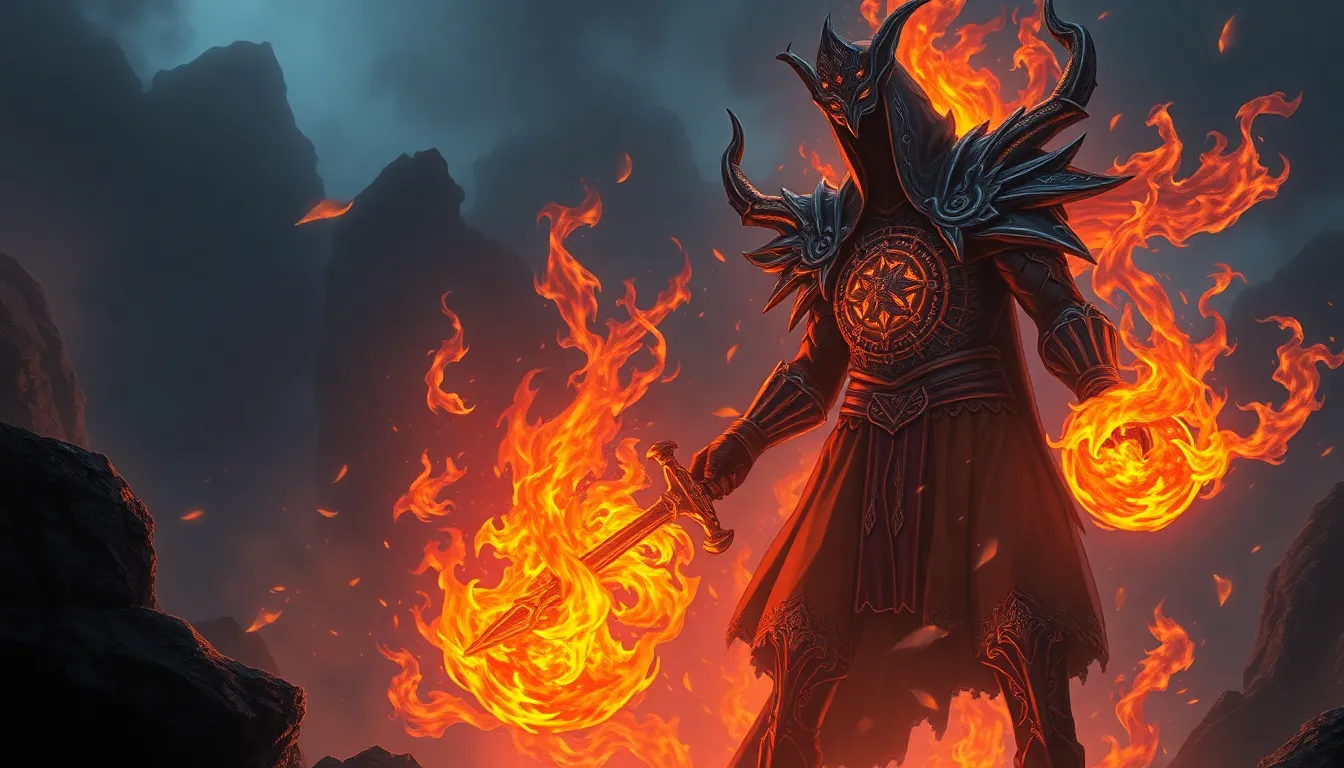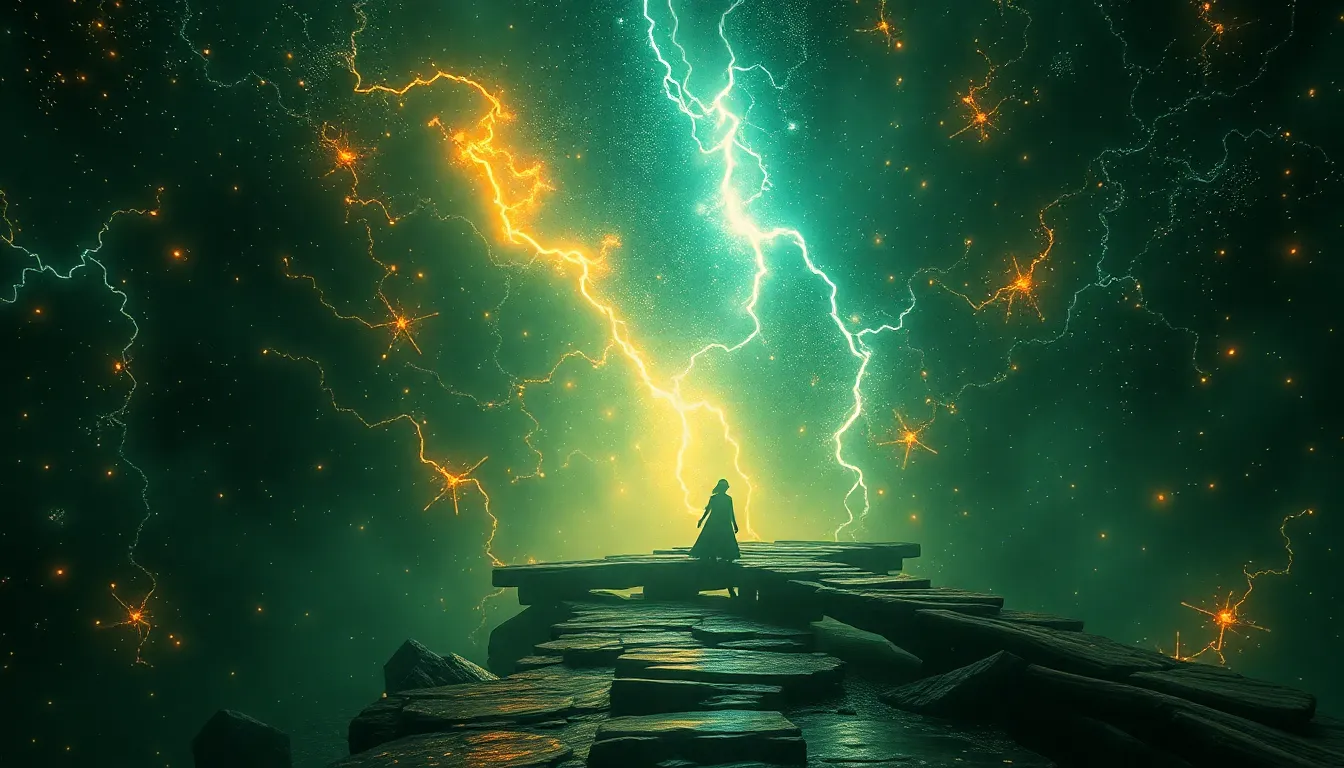The Myth of the Eternal Flamekeeper: Legends of Guardianship
Introduction: The Allure of the Eternal Flamekeeper
The concept of the Eternal Flamekeeper is a mesmerizing one, representing a figure tasked with the guardianship of an everlasting fire, which symbolizes life, purity, and continuity. This myth has gained significance across various cultures, where the flamekeeper embodies not just the physical act of maintaining a flame, but also the deeper spiritual responsibilities that come with it. Through this article, we aim to explore the historical origins, cultural variations, and the modern relevance of the Eternal Flamekeeper myth, shedding light on the timeless struggle of guardianship.
Historical Context: The Origins of the Flamekeeper Myth
The role of guardianship has been a fundamental aspect of human civilization since ancient times. Fire, one of humanity’s earliest discoveries, has always held a deep symbolic meaning. It represents warmth, safety, and the spark of life, and the need to protect it has led to the emergence of myths surrounding flamekeepers.
In examining ancient civilizations, we find numerous examples where fire was central to religious and communal practices. The concept of guardianship over fire can be traced back to:
- Primitive tribes where fire was a crucial element for survival.
- Ancient temples where the sacred fire was tended to by priests and priestesses.
- Myths that highlight the importance of maintaining the divine flame for prosperity and protection.
These early legends laid the groundwork for what would become the Eternal Flamekeeper myth, resonating through cultures and ages.
Cultural Variations: Eternal Flamekeepers Across Civilizations
The symbolism and role of the flamekeeper vary distinctly across different cultures:
- Ancient Greece: The Vestal Virgins were tasked with maintaining the sacred fire in the Temple of Vesta. Their dedication ensured the safety and prosperity of Rome, reflecting the importance of virginity and purity in their role as flamekeepers.
- The Indigenous Peoples: Many Indigenous cultures view fire as a spiritual guide. Various tribes have rituals that honor fire as a source of life and wisdom, with its keepers often embodying the role of a protector and teacher.
- Eastern Philosophies: In Hinduism and Buddhism, fire represents transformation and purification. The Agni, or fire god, is revered, and rituals often involve flame as a means of connecting with the divine.
The Role of the Flamekeeper: Guardian or Prisoner?
While the flamekeeper is often seen as a guardian, this role can come with heavy burdens. Responsibilities of a flamekeeper include:
- Maintaining the fire’s physical presence and purity.
- Performing rituals and ceremonies associated with the flame.
- Serving as a moral and spiritual guide for the community.
However, this role can lead to significant psychological and emotional challenges. The weight of expectation, the fear of failure, and the constant vigilance required can transform the flamekeeper from a guardian into a prisoner of their responsibilities. Many stories illustrate the sacrifices made by flamekeepers, showcasing their devotion and the toll it takes on their lives.
The Eternal Flame: Symbolism and Meaning
The eternal flame is rich in symbolism. It represents:
- Life: Fire is often seen as a source of life, necessary for warmth, cooking, and safety.
- Purity: The act of maintaining the flame reflects purity of purpose and intent.
- Transformation: Fire has the power to change substances, symbolizing rebirth and renewal.
In mythology, the connection between flame and immortality is prevalent. The idea of an eternal flame suggests a continuity beyond death, often represented in modern memorials and ceremonies, where flames symbolize remembrance and honor for those who have passed.
Legends of Betrayal: The Fall of Flamekeepers
Not all stories of flamekeepers are ones of success and honor. There are notable myths that depict the tragic fall of flamekeepers:
- In some cultures, the neglect of the sacred fire leads to disastrous consequences for the community.
- Stories of betrayal, where a flamekeeper abandons their duty, often result in calamity.
- These tales serve as cautionary lessons about the importance of diligence and commitment.
Such legends remind us that the path of the flamekeeper is fraught with challenges and the potential for failure, which can reverberate throughout the community.
Modern-Day Flamekeepers: Guardianship in Contemporary Society
Today, the metaphor of the flamekeeper has transcended its ancient roots, evolving into a broader concept of guardianship. Modern flamekeepers can be found in:
- Cultural Guardians: Individuals and groups dedicated to preserving traditions, languages, and cultural practices.
- Environmental Activists: Those who advocate for the protection of nature and the planet, ensuring the ‘fire’ of the Earth remains vibrant.
- Community Leaders: People who foster unity and support, embodying the spirit of guardianship in their neighborhoods.
Various community initiatives reflect the flamekeeper spirit, emphasizing the importance of stewardship and interconnectedness in a rapidly changing world.
The Flamekeeper’s Legacy: Transitions Through Time
The myth of the Eternal Flamekeeper has evolved significantly over time. In ancient societies, the flamekeeper was a revered figure often linked to divine favor. However, the rise of technology and modernization has altered perceptions of guardianship:
- While the physical act of maintaining a fire may have diminished, the symbolic role of the flamekeeper remains vital.
- The digital age presents new challenges and opportunities for guardianship, as cultural and environmental issues become more globalized.
- Looking ahead, the concept of guardianship will continue to adapt, reflecting the complexities of modern society.
Interpreting the Myth: Art, Literature, and Media Representations
The Eternal Flamekeeper myth has been a rich source of inspiration in various forms of art and literature:
- In visual arts, flamekeepers have been depicted as heroic and tragic figures, often symbolizing the struggle between duty and desire.
- Literature has preserved the myth through storytelling, showcasing both the glory and the burdens of guardianship.
- Film and television adaptations explore themes of loyalty, sacrifice, and the consequences of betrayal, bringing the myth to contemporary audiences.
These representations serve to keep the myth alive, adapting its lessons for modern interpretation while honoring its historical roots.
Conclusion: The Enduring Power of the Eternal Flamekeeper Myth
The myth of the Eternal Flamekeeper is a powerful narrative that resonates across cultures and time. It embodies the ideals of guardianship, sacrifice, and the eternal struggle to maintain what is sacred. As we reflect on the stories of flamekeepers, both past and present, we are reminded of the importance of dedication, the weight of responsibility, and the enduring legacy of those who keep the flame alive.



